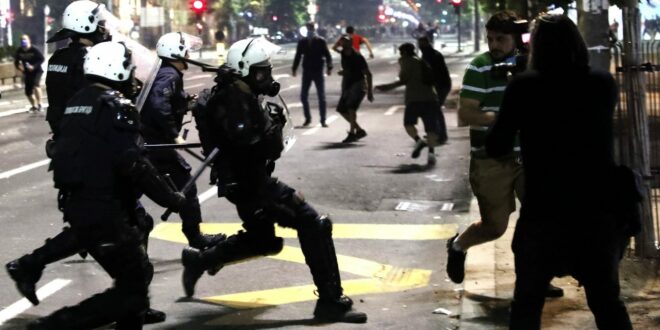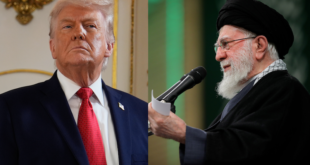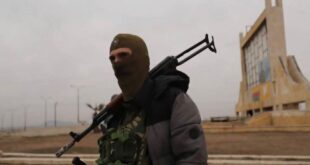Restrictions on media freedom, unpunished violations by officials and alleged violence by police continued to be problems in south-east European countries in 2020, said a new US State Department report.
The US State Department’s 2020 Country Reports on Human Rights Practices, which was published on Tuesday, warned that countries in the Balkans and south-east Europe have continuing problems with media freedom, censorship and violence against journalists, while officials are not being sanctioned for rights violations.
“Intimidation, harassment, and threats, including a number of death threats, against journalists and media outlets continued during the year without a systematic institutional response,” the country report on Bosnia and Herzegovina said.
“Numerous restrictive measures introduced to deal with the COVID-19 pandemic were in some instances misused to limit access to information,” it added.
The country report on Serbia noted that in July 2020, 11 NGOs sent an urgent appeal to the UN special rapporteur on torture, asking him to investigate police brutality during anti-government protests throughout the country.
“NGOs reported excessive, unjustified, and illegal force against protesters, including journalists, by police and other unidentified persons allegedly from informal criminal groups closely linked to the Ministry of Interior,” the report said.
In both Serbia and Bosnia and Herzegovina there are still problems with prosecuting and punishing war crimes committed in the 1990s, said the State Department.
Police violence was also noted in the country report on Albania, after clashes broke out during a protest about the demolition of National Theatre in Tirana in May 2020.
“The [Albanian] ombudsman received several complaints of excessive use of force and injuries from tear gas during those protests and referred one case for prosecution,” said the report.
The country report on Bulgaria criticised the authorities for allegedly interfering with freedom of speech online.
“There were reports… that the government exceeded its legal authority in monitoring private online communications, and that security services routinely questioned individuals about their social media behavior,” it said.
The country report on Montenegro said that unsolved attacks on journalists, political interference with the public broadcaster, smear campaigns by pro-government tabloids and unfair treatment and economic pressure from the government against independent and pro-opposition media remained a significant problem.
The report also said that the Montenegrin police and prosecution had targeted at least a dozen people on suspicion of causing panic or disrupting public order through online posts.
The country report on North Macedonia expressed concern that while the constitution and law provide for the right to a fair trial, and the judiciary generally enforced this right, in practice, prosecutors often exceeded the six- or in some cases 12-month-long deadlines for completing investigations, that are in place to avoid protracted criminal proceedings, “and suffered no adverse consequences for failing to meet them”.
The high level of corruption in Kosovo is still a major problem, according to the country report. Despite the fact that several officials have been dismissed or prosecuted, “many corrupt officials, however, continued to occupy public sector positions”, the report said.
It also noted that “leading politicians and civil society leaders, particularly [Kosovo Liberation Army] veterans’ organisations” had denounced and tried to undermine the Hague-based Kosovo Specialist Chambers, which was set up to try former guerrillas for wartime crimes.
“These efforts included public protests, a petition drive to abrogate the court, and a legislative initiative proposed by former president [Hashim] Thaci that could have undermined the KSC’s mandate,” the report said.
The country report on Turkey listed a series of alleged rights violations including arbitrary killings, suspicious deaths of people in custody, forced disappearances, torture, arbitrary arrests and the continued detention of tens of thousands of people, including opposition politicians and former members of parliament, lawyers, journalists and human rights activists.
“The government took limited steps to investigate, prosecute, and punish members of the security forces and other officials accused of human rights abuses; impunity remained a problem,” the report said.
In the country report about Croatia, the issue of alleged police violence against migrants and refugees who were trying to enter the EU border state from Serbia or Bosnia was raised.
Citing the Croatian ombudsperson for human rights, the report also noted that “ethnic discrimination was the most prevalent form of discrimination, particularly against Serbs and Roma”.
Ethnic discrimination was also noted in Romania, with the country report citing “reports from NGOs and media that police and gendarmes mistreated and abused Roma, primarily with excessive force, including beatings” – particularly “in the context of enforcing movement restrictions” during the pandemic.
The lack of sanctions on offending officials was listed as a significant problem in Romania and in the country report on Moldova, where “authorities rarely prosecute and punish officials accused of corruption or human rights violations”, the report claimed.
 Eurasia Press & News
Eurasia Press & News



